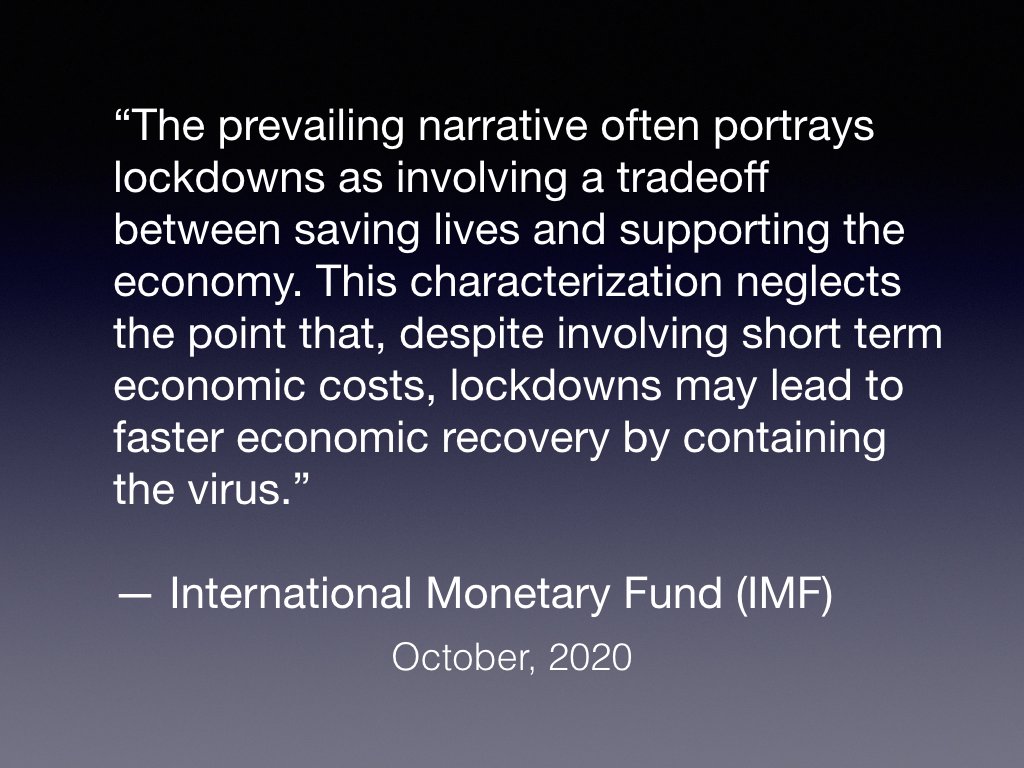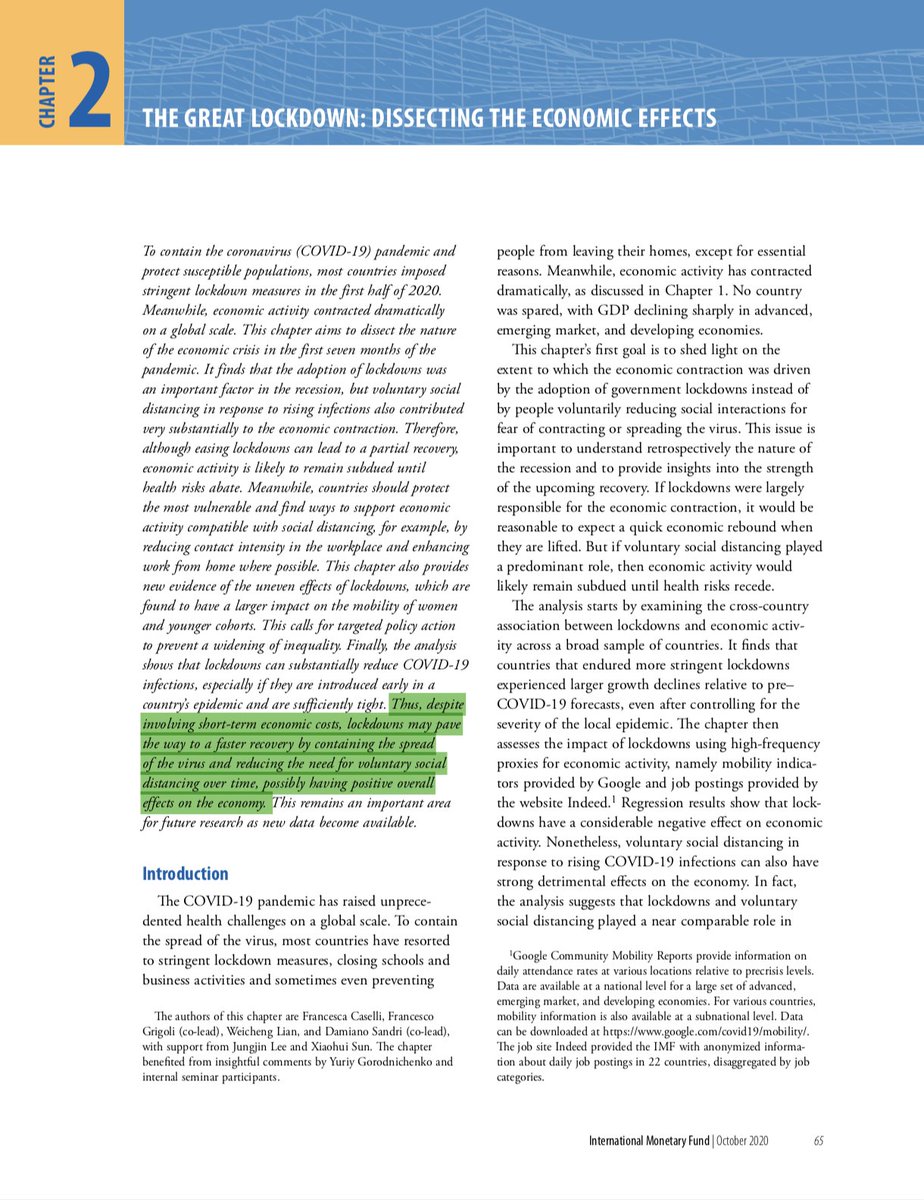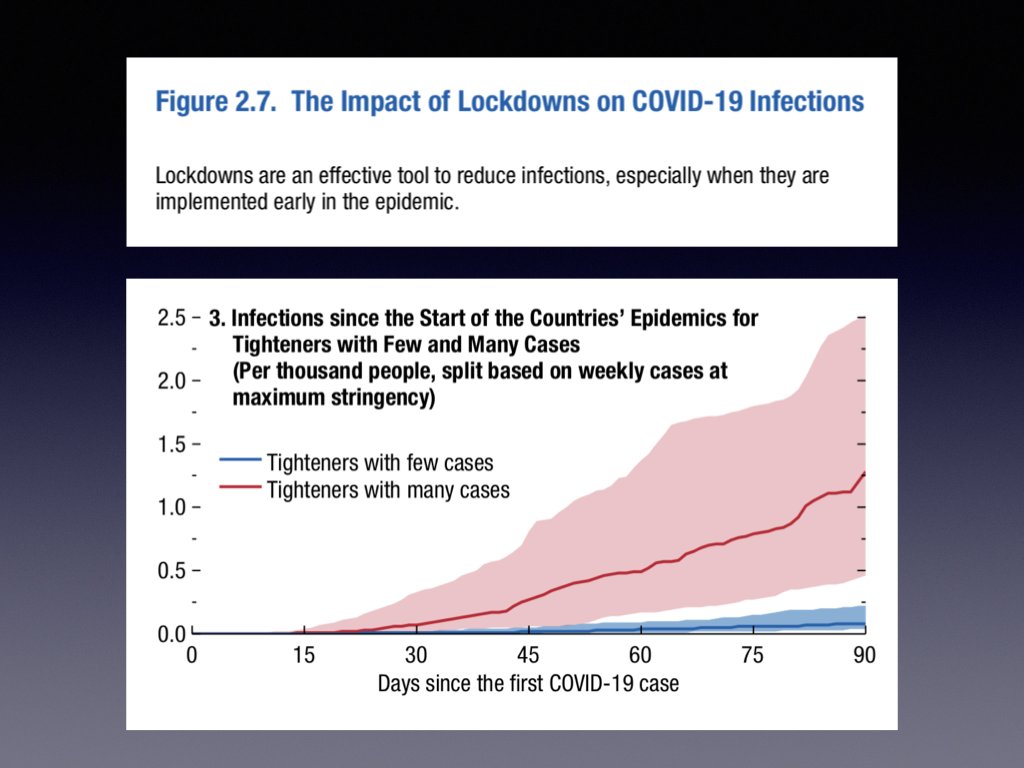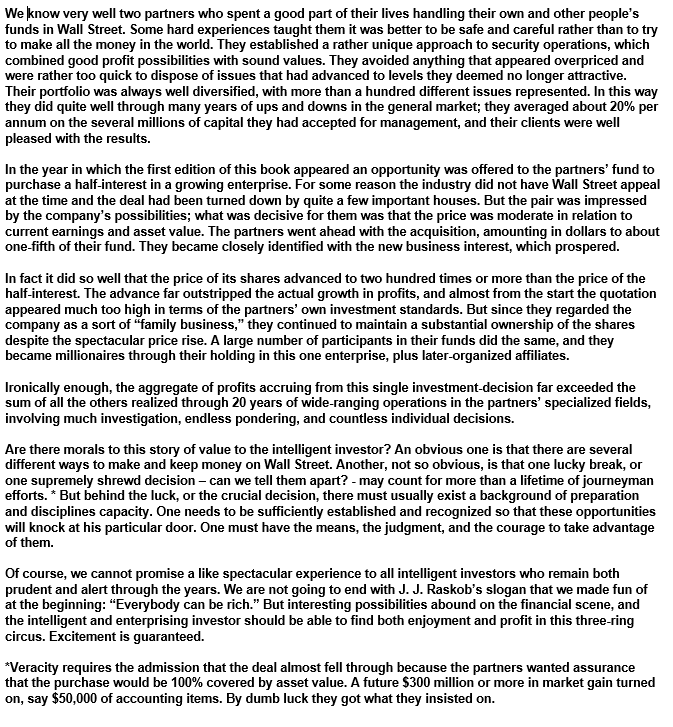Jacobtldr Categories Economy
7 days
30 days
All time
Recent
Popular
The International Monetary Fund (IMF) is analyzing damage due to COVID and projecting further severe consequences if current policies persist. They state “despite involving short term economic costs, lockdowns may lead to faster economic recovery by containing the virus”
1/

Note: This report doesn’t do a dynamic analysis that makes things much clearer, but it does a thoughtful statistical analysis based upon increasingly available data.
https://t.co/5Xmt8y7lCL
A few more quotes:
2/

“The analysis also finds that lockdowns are powerful instruments to reduce infections, especially when they are introduced early in a country’s epidemic and when they are sufficiently stringent.”
3/

“lockdowns become progressively more effective in reducing COVID-19 cases when they become sufficiently stringent. Mild lockdowns appear instead ineffective at curbing infections.”
4/
“The results suggest that to achieve a given reduction in infections, policymakers may want to opt for stringent lockdowns over a shorter period rather than prolonged mild lockdowns...
5/
1/

Note: This report doesn’t do a dynamic analysis that makes things much clearer, but it does a thoughtful statistical analysis based upon increasingly available data.
https://t.co/5Xmt8y7lCL
A few more quotes:
2/

“The analysis also finds that lockdowns are powerful instruments to reduce infections, especially when they are introduced early in a country’s epidemic and when they are sufficiently stringent.”
3/

“lockdowns become progressively more effective in reducing COVID-19 cases when they become sufficiently stringent. Mild lockdowns appear instead ineffective at curbing infections.”
4/
“The results suggest that to achieve a given reduction in infections, policymakers may want to opt for stringent lockdowns over a shorter period rather than prolonged mild lockdowns...
5/
I wrote about the exceptional opportunity in US NatGas about a week ago, and things are moving quickly...
Let’s do an update and go through some exciting developments. In short, the picture for NatGas continues to improve from all angles.
A thread.
Let’s do an update and go through some exciting developments. In short, the picture for NatGas continues to improve from all angles.
A thread.
Time for a thread about US NatGas and why it will surprise to the upside...
— BVDDY (@BvddyCorleone) October 22, 2020
There\u2019s an exceptional opportunity setting up in the energy space, in particular for US NatGas and related equities.
I\u2019ll explain the setup in this thread and also reveal my top pick. \U0001f920
For reference, multinationals (almost entirely US-based) typically use the “Green Jersey” tax evasion tactic, utilising Ireland and Jersey/Cayman, etc to avoid paying taxes in the US.
These tax avoidance techniques result in effective tax rates of ~0-2.5% https://t.co/R433UuKInX

MNCs have been a bright spot in a faltering domestic economy during Covid lockdowns. They’ve provided a much-needed, reliable source of inflows as other streams have dried up.
However, we’re not 12 years old, so let’s have a deeper dive, as this is not showing the full picture.

Leo and his ilk will try to lightswitch-brain you into thinking that raising taxes on MNCs will drive them away. You should be grateful!
In reality, largest threat is from US and EU tax reform. Take Biden’s tax reform proposals, which targets US MNC offshoring/“GILTI” profits

GILTI, or Global Intangible Low-Taxed Income utilities “Base Erosion” or “BEPS” to lower the taxable profit in the United States by shifting ownership of US IP into Irish tax jurisdictions.
I would wager targeting these techniques is popular on both sides of the isle in America.
This represents a significant geo-political and economic risk for Ireland. At any moment, any change, whether intentional or accidental can change the incentive structures for US MNCs, resulting in these companies pulling billions of IP from Ireland over night.
These tax avoidance techniques result in effective tax rates of ~0-2.5% https://t.co/R433UuKInX

Multinationals played a crucial role in lifting Ireland out of the last recession and they will again as we rebuild our economy after Covid.\xa0What does SF want to do? Tax them.\xa0https://t.co/B7n8esbzPN
— Leo Varadkar (@LeoVaradkar) October 11, 2020
MNCs have been a bright spot in a faltering domestic economy during Covid lockdowns. They’ve provided a much-needed, reliable source of inflows as other streams have dried up.
However, we’re not 12 years old, so let’s have a deeper dive, as this is not showing the full picture.

Leo and his ilk will try to lightswitch-brain you into thinking that raising taxes on MNCs will drive them away. You should be grateful!
In reality, largest threat is from US and EU tax reform. Take Biden’s tax reform proposals, which targets US MNC offshoring/“GILTI” profits

GILTI, or Global Intangible Low-Taxed Income utilities “Base Erosion” or “BEPS” to lower the taxable profit in the United States by shifting ownership of US IP into Irish tax jurisdictions.
I would wager targeting these techniques is popular on both sides of the isle in America.
This represents a significant geo-political and economic risk for Ireland. At any moment, any change, whether intentional or accidental can change the incentive structures for US MNCs, resulting in these companies pulling billions of IP from Ireland over night.



























